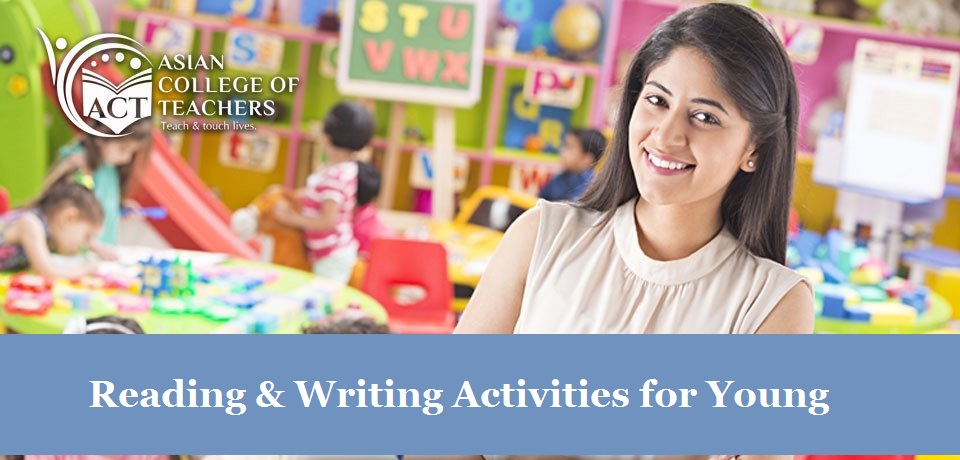Reading & Writing Activities for Young Learners
26th December 2017

Doing activities with your children allows you to promote their reading and writing skills while having fun at the same time. As a teacher trained in Pre & Primary Teachers Training, your main goal will be to develop great enthusiasm in the reader for reading and writing. As a teacher you are the child's cheerleader and more important for the child to learn to love reading and writing. If your young learner finishes one book and asks for another, you know you are succeeding! If your young learner writes even once a week and comes back for more, you know you have accomplished your beginning goals.
Young learners building their literary skills will benefit from both group and individual writing activities. Collaborative writing activities bring students together to constructively critique grammar and spelling. Solo writing activities like poetry or journaling help develop individual creativity. Children learn to use symbols, combining their oral language, pictures, print, and play into a coherent mixed medium and creating and communicating meanings in a variety of ways.
Young children are wonderful processors of new information and can learn to read and write quickly, if well motivated. These training methodologies are imparted through Early Childhood Care Teachers Training Courses and the trained teachers must enjoy the process and be in a positive, fun, success-oriented learning environment.
Begin by teaching children to recognise, understand words through games, songs and stories. Allow them to hear plenty of English from you, encourage them to speak English by repeating you, joining in different activities and responding to simple questions. This foundation is vital for learning sounds and letters. Young children will quickly learn English words if you introduce them with a picture that clearly shows the meaning or you can point to the object in the classroom e.g. chair, door, window.
Young learners love stories, and reading with young learners typically involves including a wide range of activities along with the reading itself. We read the images, read the text aloud, retell the story with our own words, and carry out a series of playful activities based on the text.
Around the age of 5 or 6 young children are already familiar with picture books, and they have developed strategies to understand stories that are read to them. Storytelling has gained more importance than ever before as it revises vocabulary and introduces new words, phrases your students might not know in the initial stage. A Pre & Primary Teachers Training program trains the teachers to implement these techniques in the classroom.
Writing is a vital skill that opens up a world of possibilities for any student. Written communication in whatever language, even with the advent of the internet, is still a necessity. Since writing whole sentences on their own can be rather challenging, the word jumble activity can help students understand word order, and yet, it gives them the support they need.
The ability to read and write needs to be instilled in the child from a primary level, with careful planning and instruction. Children need regular and active interactions with the teachers in the classrooms. Specific abilities required for reading and writing come from immediate experiences with oral and written language.
Written By: Admin